"Buy generic lariam on line, symptoms pulmonary embolism".
J. Ramon, M.B. B.CH. B.A.O., Ph.D.
Assistant Professor, East Tennessee State University James H. Quillen College of Medicine
Donegal, 25 February 1847: I went today to see the people making a government road. It was painful to see men, women and children engaged in this hard work, wasting quantities of powder in blasting, and even cutting up pieces of cultivated land when their time was wanted to till their own ground. About 1,500 are employed on these roads out of the population of about 10,000 of which the parish of Killybegs consists (171). From James Harvey and Thomas Grubb, Limerick, 22 February 1847: On our way to Milltown [County Clare), and on our return next day by Kilkee, we entered several cabins of the poorer cabins along the road, and in every instance administered some small relief, while we made enquires as to their modes of life and means of subsistence. The scenes which we witnessed, and the stories which we heard in these abodes of human misery, will not be easily effaced from our memory. All were poor in the extreme-some deplorably so; but it was the same sad tale we heard from all; their potatoes had failed, and their scanty stock of oats being all consumed, they are now solely dependent on the wages received from the road works. The applicants for employment are so numerous, that in most instances only one man in a family, and in some cases one, and a boy, woman, or girl, can obtain it. The pay of a man is tenpence, a woman eightpence, and a boy sixpence per day; and when you consider that there may be broken days from sickness or severe weather-that the price of the low est description of food is enormously high-and the families here average about seven individuals, you will not be sur prised when we state, that they can scarcely support life under their many privations. Source: Transactions of the Central Relief Committee of the Society of Friends During the Famine in Ireland in 1846 and 1847. In his introduction to his Jail Journal, the Irish revolutionary John Mitchel charged that while Ireland starved, food to the value of fifteen million pounds sterling was exported to England whose own ample harvests in those years provided for more than double of its own population. Did the British government treat the Irish differently than they treated their own poor? There was no famine in England, but studies of the working class during the industrial revolution in England reveal the attitude of the government toward its poor. Analyze changing and competing interpretations of issues, events, and developments throughout world history. Distinguish between relevant and irrelevant information and between fact and opinion. Identify significant literary elements and use those elements to interpret the work. Present a controlling idea that conveys an individual perspective and insight into the topic. Ask students to read passages about life expectancy and infant/child mortality from Frederick Engels, Conditions of the Working Class in England (1844) and study the charts and graphs of life expectancy by social class. How did Engels explain the low average age of death for "labourers, mechanics and servants"? What did Engels think should be changed to improve the conditions of the working class? He does not complain; he is not being ironic, but his innocent words provoke a sense of moral outrage in the reader against the exploitation of children. What kind of harmful things was the body of a young sweep exposed to while cleaning chimneys? Is Blake saying that the church says that if the sweeps just do their duty, however dangerous, they will be rewarded? If, like Tom Dacre, one of those children went to sleep after work and had a dream, what would it be? In the last two lines of the second stanza that child will be told by someone that if he/she does his/her duty, there will be a reward. When we examine British attitudes toward the English working class and their attitude toward the Irish during the potato famine, are we looking at racial and religious prejudice? Did the British government treat the Irish poor any differently than it treated the English poor? How would English attitudes toward the English poor have affected the Irish during the Great Famine? In your opinion, are people poor in the United States today because of problems of the economic system, because of issues like racism or because of personal failures? Using your own view, write your own editorial about local poverty or poverty in the United States. This made the material more accessible and gave students practice in reading and interpreting information from graphs and charts. Some teachers use this activity to discuss child labor today and the human rights of adults and children.
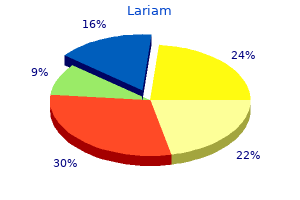
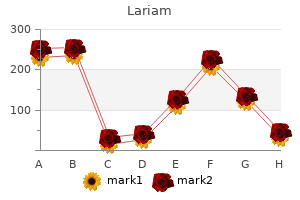
Within the reservation, the strict isolation of the strongly contagious could easily be achieved. I n this way the danger of infection would be removed and the problem of the German consumptives in the province would be overcome. That at least some of the tubercular Poles were exterminated, while the others were taken to death camps where they were left to die, is proved by the affidavit of the defendant Rudolf Brandt. Brandt tried to explain, not to say repudiate, this affidavit by testifying that he made the statements on the basis of documents shown to him in pretrial interrogations. He stressed the point, however, that he insisted the wording of one sentence be changed. This senten~e originally read: "As a result of the suggestions made by Blome and Greiser, 8-10,000 Poles were exterminated"! This proves in itself that Brandt did not make his statement 83) in exclusive reliance on the contents of the documents shown to him in pretrial interrogations (Tr. There is no document i n evidence or in the possession of the prosecution which would give the basis for this statement. Without a doubt, Rudolf Brandt is as well advised on the crimes which are the subject of this trial as any man in Germany. There is no reason whatever for refusing to give full weight to the pretrial statements of Brandt. Surely his pretrial affidavits are entitled to more weight than the blatant nonsense which was his testimony. Blome denied that he ever planned or suggested that Poles suffering from open tuberculosis should be exterminated and that the remainder should be put in reservations and left there to die (Tr. Blome approved or supported this murderous plan, and (6) i t is also untrue that this plan was ever carried out. Blome who, by his clever intervention saved the lives of the 25,00030,000 tubercular Poles who were to be "liquidated. Blome was then assigned to this matter because it was known that he had for many years made the fight against tuberculosis the aim of his life, and because he built his cancer institute in the same Gau which Gauleiter Greiser governed. Blome stated his attitude to this plan clearly at the time in the wellknown letter of 18 November 1942. I n his letter of 18 November 1942 (Appendix 25) he definitely rejected the first possibility and advocated the latter. Thereupon, after a subsequent examination of the matter, Hitler withdrew the extermination order and thus Himmler had no alternative but to do the same. Although these facts are incontestably proved by the documents presented, the prosecution nevertheless upheld the charge against Blome. The prosecution in their speech of 19 December 1946 described this letter a "devilish masterpiece of murderous intent. I n this way Blome would have achieved nothing for the Poles, but would have had to expect to be brought before a court himself and sentenced for sabotaging an order of the Fuehrer, or to have disappeared izl a concentration camp without any legal sentence. With such simple method as entering a solemn protest by calling on the laws of humanity or of justice nothing would have been achieved with Hitler, especially when he had already made up his mind and had decided on a certain matter and had already given the necessary orders for execution; in such cases Hitler was usually inaccessible and would not listen to any counterproposals. Blome therefore looked for reasons which would perhaps have a decisive influence on Hitler and these were either the Church or other nations. It is understandable that Hitler, in view of the tense situation at that time, in the middle of the Second World War, did not want to break completely with the Church, and he also had to consider the opinion of foreign countries so as not to antagonize neutral states. In his letter of 18 November 1942 he emphasized in a skillful manner, and with full determination, these two points of view, and with those two references he achieved full success. Hitler had, so to speak, only to press the button and 25,00030,000 Poles would be done away with. This was merely a trick which Blome used in order to ensure a favorable consideration of his second and third proposals (internment or reservation). Blome was able to bring to the foreground points of view against the plhn of extermination which conceivably might greatly impress Hitler. For it is certain that Hitler thereupon dropped his plan and completely rescinded his orders for the murder. Apparently he did this under the influence of numerous protests which had been made by the two Christian Churches.
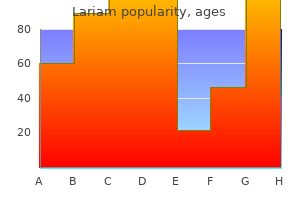
It should be noted that the Commission asked the army solicitor general for copies of the records of the trials heard by the war tribunals of Pisagua and other documentation connected to its investigation. Such norms include both those related to determining which acts are subject to punishment and how guilt is to be established and those for evaluating evidence, establishing the defense, and accepting or rejecting circumstances that might qualify the degree of responsibility attributed to those guilty. In Pisagua five people who were condemned to death and executed were supposed to have been taken before a war tribunal. It was impossible to obtain a copy of the sentence, if there was any, and according to the testimony of several detainees of that camp, far from being allowed to have representation in their own defense, the accused did not appear before any war tribunal. In short, this situation was unlawful, and the decree published in the newspaper El Tarapac on October 26, 1973, was an attempt to justify it. That decree states that they "were found guilty because they confessed that they had committed the crimes of treason to country and espionage as found in Articles 252 and 254 of the Military Justice Code, and also of violating what is laid down in Article 1 of Law No. Detailed examination # the Commission has been able to determine that sixteen war tribunals were held in the city of Arica, and that they tried fifty-seven persons, eleven of whom were acquitted while the remainder were sentenced to various punishments of imprisonment and banishment for being guilty of the crimes envisioned in Article 416, Nos. The commander of the prison camp at Pisagua changed the death penalty of two of those on trial to life imprisonment and upheld the maximum punishment for the other four. The rest were given life imprisonment, with the exception of one who was given twenty years imprisonment under maximum security. The commander lowered this latter sentence to ten years imprisonment 128 and reduced one of the life sentences to twenty years. In addition to the crimes already mentioned, the tribunal believed that the crimes sanctioned in Articles 3, 6, 11, and 13, of Law No. One of these death sentences was reduced to a prison term of five years and one day, in a sentence given by the commander of the zone under state of siege in the province of Tarapac. On February 11, the commander of the prisoner camp reduced two of the death sentences to life imprisonment, increased or reduced some of the sentences of imprisonment or internal exile; and acquitted seventeen of those sentenced and allowed sixteen of those who had been tried to be released unconditionally. Upon being captured two months later they were tried in a war tribunal and sentenced to fifteen years of imprisonment for having committed the crimes described in Articles 348, 305, 355, and 321 of the Military Justice Code. In trial record 11-73 one person is given the maximum punishment, which the commander of the zone under state of siege lowers to twenty 129 years and one day. In trial record 46-73 the person receives the death sentence; when the division commander examines the sentence, he gives his approval but then lowers the punishment to life imprisonment for the crimes sanctioned in Article 4 (a and d) of Law No. It is striking to note that three were found guilty of being accomplices in the crime of embezzlement of public funds as found in Article 233 of the Penal Code, even though there is no mention of those who were guilty of the crime itself. The guilty verdicts were based on Articles 292, 293, and 294 of the Criminal Code, Articles 245, No. In trial record 347-73 two people were sentenced to death and executed for the crimes described in Articles 8, 9, and 13 of Law No. Other punishments imposed range from military life imprisonment to the lowest level of internal exile, as determined by the laws mentioned previously. The sentences meted out were based on the provisions of Articles 443 and 446 of the Criminal Code, Articles 9, 10, and 11 of Law No. One irregularity in trial record 200-75 is the fact that a member of the tribunal also gave testimony on who the parties were and how the police had acted. In trial record 42-73 the defendant was sentenced to three years and one day of internal exile for various crimes described in Laws 12927 and 130 17798. As the result of a sentence given on September 14, 1988, those charges were lifted, since he was regarded as eligible for amnesty according to Decree Law No. Thirty-seven people were tried in the five war tribunals known to have been held in Los Andes. The guilty verdicts were based on Article 399 and 446 of the Criminal Code; Articles 8, 9, 10, and 13 of Law No. With regard to the activity of these tribunals it should be noted that: In trial record 22-73 the war tribunal expressly noted that it was not taking into account the changes in punishment introduced by Decree Law 5 131 (1973) since that law had been promulgated after the events being considered in the trial; likewise in trial record 45-73 the terms of that decree law were not applied for the same reason. In trial record 41-73 the war tribunal judged that the ordinary court system should deal with violations of Law No. It should be pointed out that contrary to what generally occurred in war tribunals, namely that they made it very difficult to accept mitigating factor No.
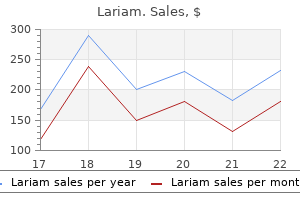
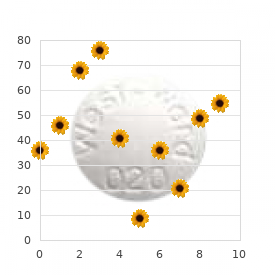
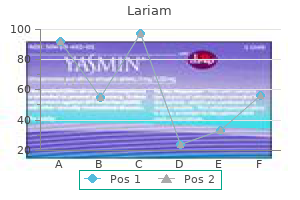
You may at this time explain to the Tribunal anything else in connection with those alterations if you wish. Well, I want to state again that I am very sorry that I did it, As I said, I only intended to submit the charts to show the weights, and not because of the other results of the medical examinations, because I am of the opinion that from the weight charts one can definitely recognize, first, how much weight the experimental subject lost; secondly, they reveal unequivocally on which days water was drunk; thirdly, they reveal clearly that immediately after the conclusion of the experiment there was a gain in weight in the case of all the experimental subjects; and, fourthly, one sees that when the persons were discharged in most cases they had again reached their original weight. Have they been circulated and translated in foreign countries and in foreign languages? Considering the facts you have just stated, it would be right to say that you have had honors allotted to you in this country and abroad; so would you please tell the Tribunal what types of decoration you have received abroad? Professor, I really want you to answer my questions because my questions pursue certain purposes. I am Honorary Doctor of the Sorbonne, Paris, of Goettingen and Freiburg; and, as far as societies are concerned, there are a lot of them, Medical Society at Edinburgh, a t Geneva, at Luxembourg. When I was lecturing in Spanish in South America, and when I was giving a lecture in Cordoba, Argentina, before a medical congress, I received a telegram to the effect that I had been,relieved from my officeand the reason given was lack of anti-Semitic attitude. You have dealt particularly with hunger and thirst treatment in the case of kidney diseases. So that you have personal medical and scientific experience regarding the observation of human beings when they undergo hunger and thirst treatment? President, before continuing with the examinatio~ of this expert witness, I should like to permit myself to make a sug- gestion. There are two types of possibilities for the examination of Professor Vollhardt regarding questions which interest us here. The other possibility would be that 1 put a number of individual questions to the expert which would deal with the subject chronologically and technically from a medical point of view. B u t, that would distort the context and would not give as clear a picture of the situation as would the first possibility. President, for you to make a decision whether the expert is to give an opinion in the form of a lecture first. Are there differences between the character of these seawater experiments and experiments with artificial infection with malaria and cholera and if there are differences, what are they? You are saying that in the case of sea-water experiments, providing they are interrupted in time, danger to health and body can be avoided with certainty or bordering on certainty. I suppose you know of the meeting of 25 May 1944, which was decisive for the planning of the experiments. Did the presence of Professors Eppinger and Heubner guarantee the purely scientific and medically proper treatment of the problem? Professor Heubner is a leading scientist and an extremely critical person, and Professor Eppinger was one of the leading clinicians in the world and a most outstanding expert, and I assume both of these gentlemen had reasons for allowing these experiments to be carried out, presumably in order to strengthen the medical men, vis-a-vis, the technicians. I think that scientifically speaking the planning was excellent and I have no objection to the entire plan. It was good to add a hunger-and-thirst group because we know by experience that thirst can be borne less well than hunger, and if people are suffering from hunger and thirst too, they do not suffer from hunger, but do suffer from thirst; and that resembles what shipwrecked persons would be subjected to because they only suffer from thirst. It was excellent that Wofatit was to be introduced into the experiments too, although it was expected from the beginning that this wonderful discovery would show its value. It turned out that groups given sea water treated according to the Schaefer method reacted similarly to a group that was subjected to a reasonable hunger treatment and did not suffer any great discomfort. I n the hunger treatment of 12, or, we should say 8 days, because the people still ate during the first 4 days, that is a minor affair, and we carry that out innumerable times for medical reasons. There exists a sanitarium where people are made to go, without food for 4 weeks, and as long as they get water in the shape of fruit juice, they still carry on well and often with enthusiasm. That sufficient volunteers could be found for a case was a matter of course, since a period of 10 days of excellent food before and after the experiment was before them, and since one could assure them with the best of confidence that there would not and could not be any danger. What is your opinion about the food before, during, and after the actual experiments? During the experiments i t was meager, corresponding to that of shipwiecked persons and afterwards quite excellent. Were they adequate for the solution of the practical question whether Berkatit was sufficiently 13sefuIand preferable to thirst treatment, and was i t sufficient to judge the daily condition of the experimental subjects so that the right time to interrupt the experiments could be ascertained? I thought that the arrangement of these experiments was splendid from the scientific point of view, and Beiglboeck apparently devoted himself with tremendous industry and great responsibility to carrying out of these experiments which he had been ordered to do. Would it be right to say that a personality such as Beiglboeck, as a professor of internal medicine and chief medical officer at a clinic for many years on the basis of daily examinations and through his personal consideration and examination of the experimental subject, would be in a position to recognize any threat to the health of the person before such a threat could actually become serious?

